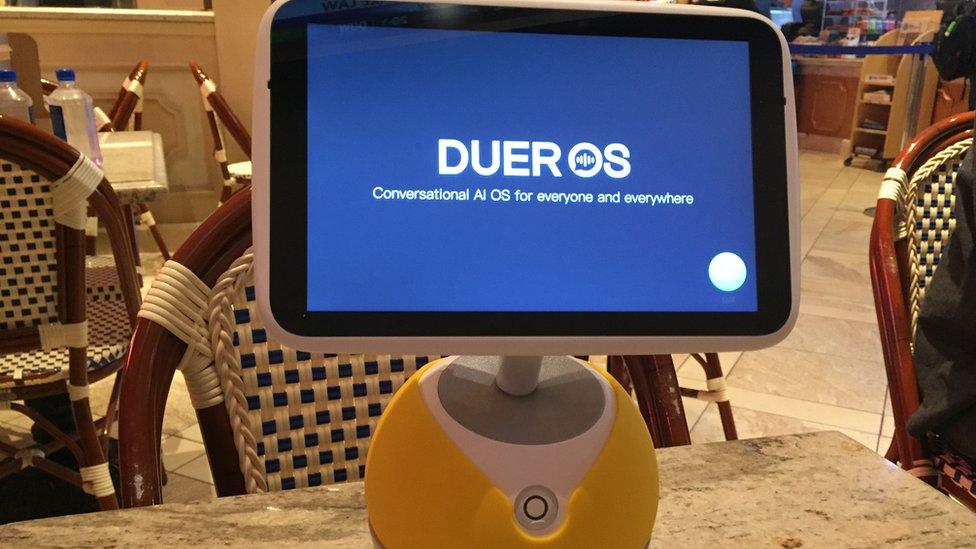CES 2017: China vows to innovate not imitate
- Published
- comments
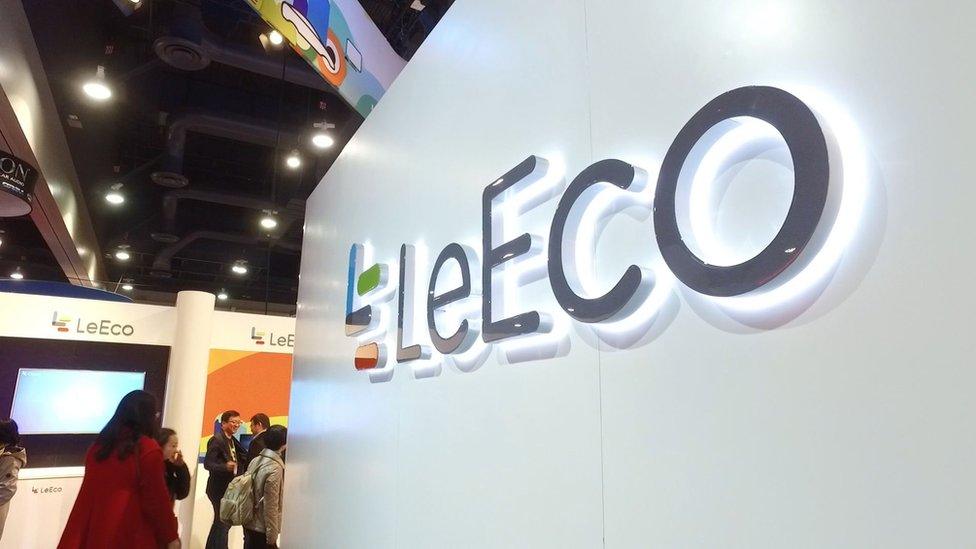
LeEco sounds French to some - but the firm is a home-grown Chinese venture
China's disregard for intellectual property, and a turn-a-blind-eye culture when it comes to blatant counterfeiting, is notorious - the butt of many jokes.
And it’s been fair. In China they don't just counterfeit devices, they counterfeit entire shops - a knock-off Apple store was closed down in 2015.
Instances like this play into the West’s view of China as the world’s shameless imitator. A place where great ideas from the US and Europe go off to be assembled as cheaply as possible.
It's time to update that view.
At CES, the US's biggest trade show, Chinese companies could be found competing not only on price, but on fantastic ideas and design.
As China's consumers have matured - and by that I mean, got a lot richer - so too has its technology industry.
Like many a British popstar, China is intent on breaking America. But the question is whether Chinese firms can earn greater trust from Western consumers.
'Sounds French'
Occupying a sizable booth in CES's North Hall is LeEco. It's pronounced "Luh" and "eco" as in ecosystem.
On display here is a concept Tesla-like sportscar, some Smart bikes with Google's Android software built in, and a 12in (30cm) TV. The point: they do a lot.
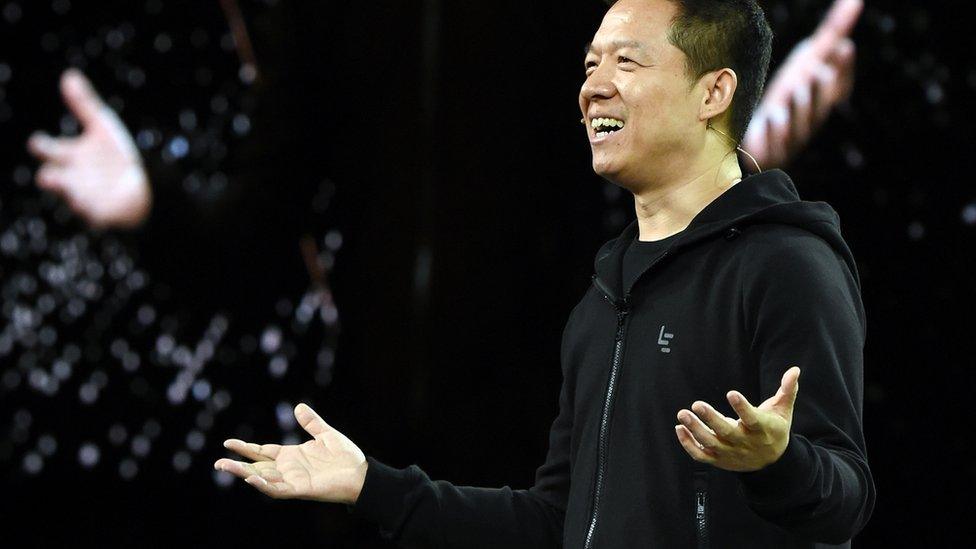
Chinese billionaire Jia Yueting, chief executive of LeEco, has been at CES this year
LeEco was for a while known as the Netflix of China, a company that streamed content and eventually started making its own original material. Now it's branching out quickly into hardware - and started selling devices in the US at the tail end of last year.
"People assume LeEco… they think it sounds French,” says Kenny Mathers, from LeEco's marketing team.
" 'Le' in mandarin means 'joyful'," he added.
"Our name means joyful ecosystem. When consumers get to pick up our products they’re delighted with build quality and design."
Sounding French is a good thing for a Chinese company, Mathers acknowledged, as it removes a trust barrier for people used to words like Apple rather than, say, Xiaomi. That said, I’ve heard at least five different pronunciations of LeEco this week.
Looking around the booth I spotted what looked very much like a GoPro camera, and I put it to Mathers that even here we're still seeing a disregard for Western intellectual property.
"I wouldn’t say that," he said.
"I would say that there’s a lot of innovation in our products. We've had a huge number of innovations in our phone line - we were the first company to remove the audio jack."
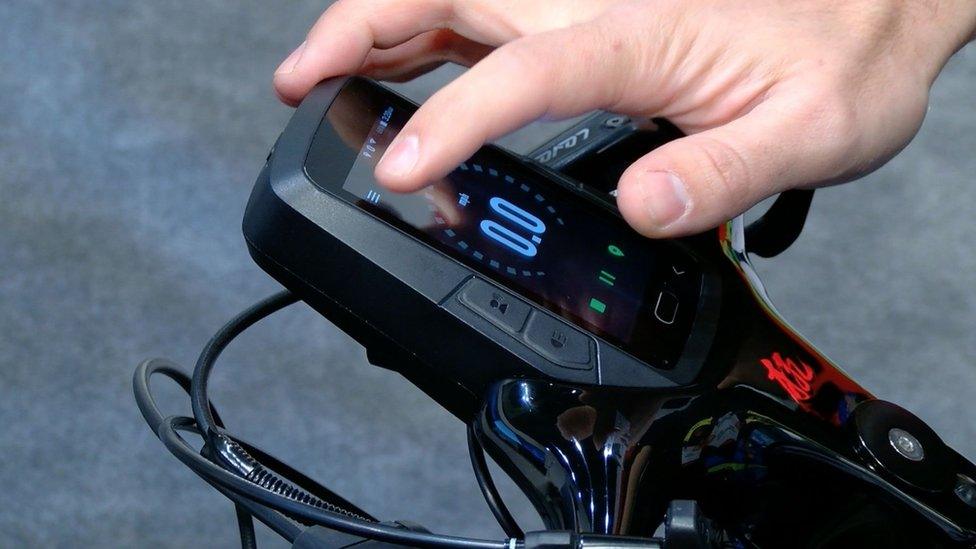
LeEco showed off an Android-powered road bike
He is of course referencing Apple’s controversial decision to remove the headphone socket from its latest iPhone - though I’m not sure that’s been a particularly popular move by either company.
LeEco won't be drawn on reports of its money woes - back in China it’s reported that Haosheng Electronics, one of LeEco’s suppliers, is taking legal action over unpaid bills. LeEco has denied reports it has failed to meet its financial obligations.
'Poor country'
According to the latest figures from research firm Gartner, sitting third in the global smartphone sales race - behind Samsung and Apple - is Huawei.
Already the biggest supplier of telecoms infrastructure in Europe, Huawei was one of the early entrants into Western markets - though in the US it was coy. The company made Google's Nexus 6P, released in 2015, but until now hadn't undertaken any serious attempts at pushing its own brand.
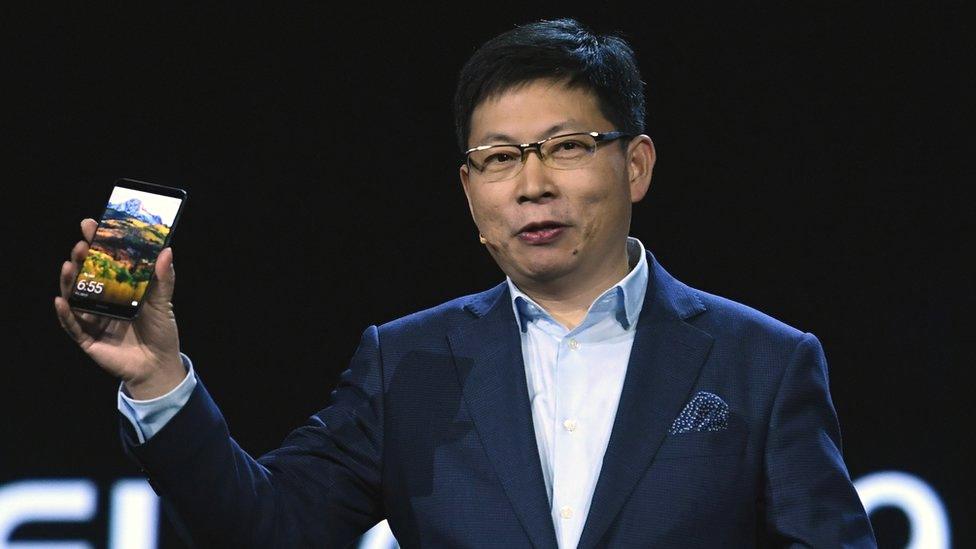
Huawei unveiled its Mate 9 phablet at the Las Vegas tech show
The new Mate 9, a so-called phablet, is the company's first high-end device to be launched in the US. One stand-out feature is a built-in voice assistant.
Curiously, while the company makes its own AI assistant, it has opted to integrate Amazon’s Alexa into this device instead. I wondered if it was because US users might not trust a Chinese firm with such broad data gathering. But Richard Yu, Huawei's chief executive (for the consumer side of things), gave a simpler explanation.
"Amazon Alexa is the best in this country,” he told me.
"We want to bring to the consumer the best services. In the China market we have our own - we have no intention to do this [in the US] in the short term."
Momentum shift
Last year, Huawei had an unexpected gift: Samsung’s devices kept on catching on fire.
"Their problem has given Huawei more opportunity to be in the market," Mr Yu said, though he felt the Mate 9 would have given Samsung’s Galaxy Note 7 a run for its money even without the problems.
He said China deserved its reputation as an imitator in years past, but was quickly shaking off that image.
"Chinese vendors are getting stronger and stronger on innovation.
"It's not like 10, 20 years ago where many in China would learn [from the West]. There is more original innovation from China now.
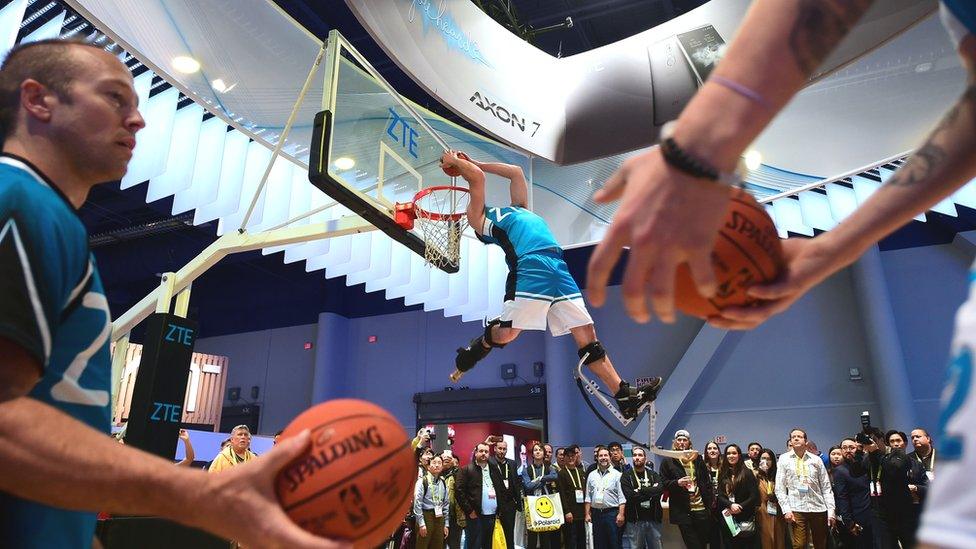
One Chinese telecoms firm, ZTE, impressed CES crowds with a spot of American basketball - on stilts
"Thirty years ago China was a very poor country. Like North Korea. Very poor. Nothing.
"Within 30 years everywhere in China is changing, growing. In Huawei we have huge investment in innovation."
This year he said he expected the company to spend $10bn (£8.1bn) on research and development - roughly in line with Apple.
But spend isn't everything. No amount of money can buy a Steve Jobs or a Jony Ive. And the cultural boundaries are proving both frustrating and fascinating - what is a massive hit in China can fall desperately flat elsewhere.
But while American firms have struggled to make headway in China, Chinese firms are accelerating into the West. With high specifications and low prices, you shouldn't bet against them.
Follow Dave Lee on Twitter @DaveLeeBBC, external
- Published7 January 2017
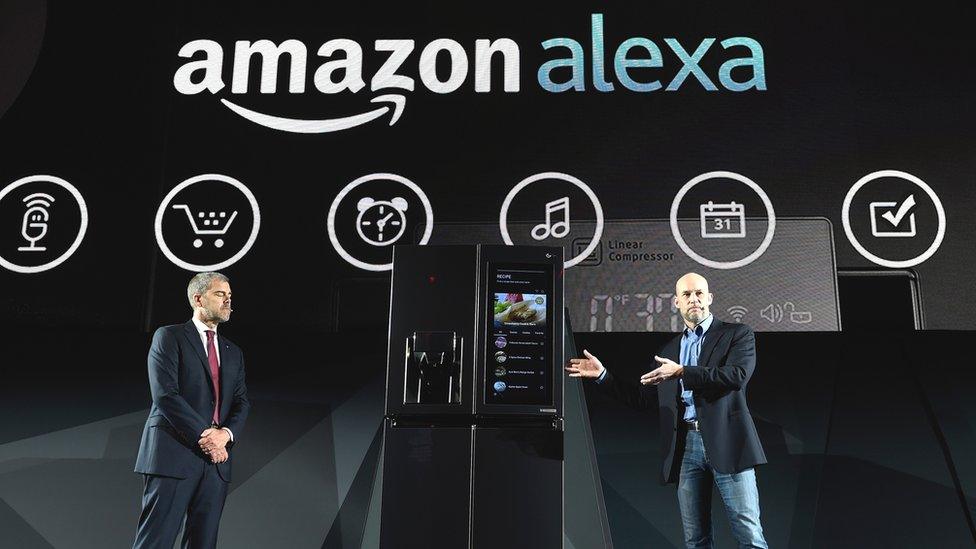
- Published6 January 2017
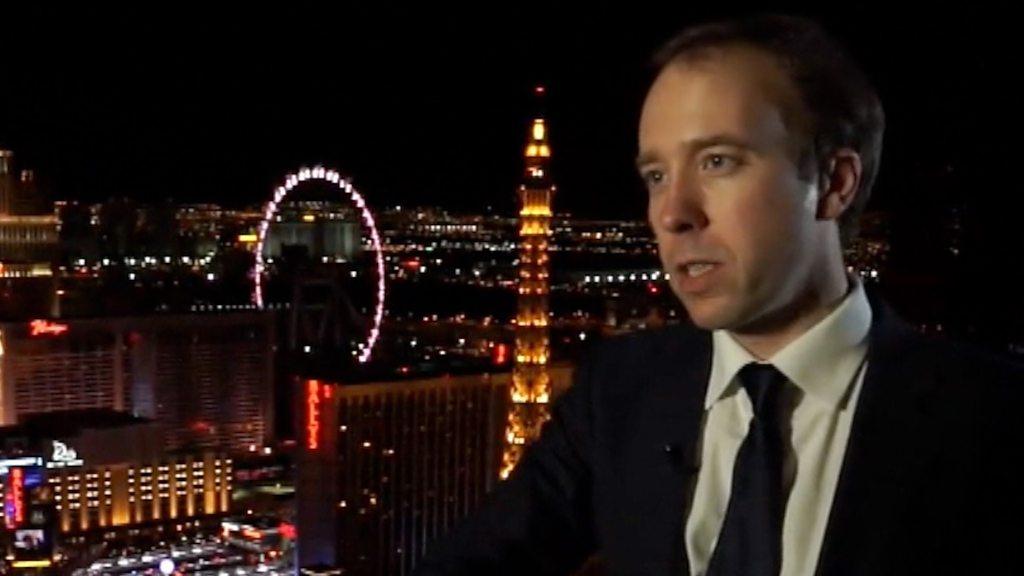
- Published5 January 2017
